The SHS/UHN Savlov/Schmidt Summer Scholars Program in Geriatrics looked different this year. Instead of shadowing physicians, geriatricians, nurses and other allied health professionals in both hospital and community-based clinical settings, for the first time the program needed to be free of clinical encounters and conducted entirely online due to the COVID-19 pandemic.
Launched in 2012, the SHS/UHN Savlov/Schmidt Summer Scholars Program in Geriatrics provides a unique and structured learning opportunity for students to gain valuable research or project experience in a health care setting and encourages them to consider a future career in the fields of ageing and geriatrics. Typically, students participating in the program have the opportunity to shadow clinicians in a variety of clinical settings and attend in-person lectures, seminars and workshops that are designed to increase their knowledge of geriatric care and skills in conducting research in health care settings.
This year, a record nine students from a variety of disciplines were still selected to be among the 2020 cohort of UHN/SHS Savlov/Schmidt Summer Scholars. The students worked with a clinical mentor on developing and implementing their research projects related to geriatrics and ageing and also participated in virtual education and mentorship sessions. At the end of the summer, the Savlov/Schmidt Scholars were also required to do a brief presentation to a broader audience about the research studies they worked on with their mentors over the course of the summer. Final presentations took place on Tuesday August 18, 2020 to a virtual audience of over 100 people from Sinai Health, UHN and other health care organizations across Canada!
We asked each of the students from the 2020 cohort to briefly describe their projects and their contributions.

Jim TC Chen, MD Candidate, University of Toronto
Mentor: Dr. Richard Norman (Staff Geriatrician, Sinai Health System)
Project description: This summer, I conducted a review of geriatric syndromes, their risk factors, and emerging geriatric-focused solutions in the ICU environment. In the past few years, organizations such as the American Heart Association and American Thoracic Society have been calling for “geriatricization” of ICUs to improve care for a rising number of critically ill older adults. With the help and guidance of Dr. Richard Norman, we are preparing a manuscript that outlines 1) the need to reconceptualize elements of post-ICU syndrome as geriatric syndromes also, 2) geriatric-focused interventions to address modifiable risk factors in the ICU, and 3) the rationale for a multicomponent bundle to address ICU-acquired geriatric syndromes. To accompany the manuscript, we are also developing a quality improvement driver diagram with process measures, outcome measures, and balancing measures to conceptualize a bundle that could eventually be customized for implementation in the Sinai ICU.
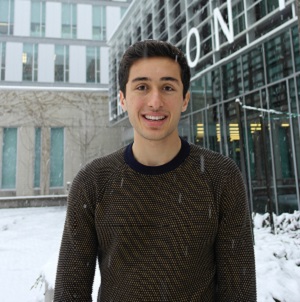
Kiyan Heybati, Health Sciences, McMaster University
Mentor: Dr. Sangeeta Mehta (Critical Care Physician, Sinai Health System)
Project description: This summer, under the supervision of Dr. Mehta, I had the opportunity to develop a multi-component intervention, called the Intensive Care for Elders (ICE), for critically ill, older adults admitted to the medical/surgical ICU. This is significant as the number of Canadians 65 years and older is expected to double by 2036, while the number of those who are 85 and older will quadruple. Therefore, hospital care should be elder-friendly and provide post-treatment rehabilitation. I conducted a literature search and review to identify areas of focus and generate items for the checklist. We are working alongside key stakeholders including nurses and clinicians, and ICU survivors and their families to ensure that the intervention is tailored to the unique needs of this population. Moving forward, we look towards evaluating the feasibility of this evidence-based strategy in the ICU setting.
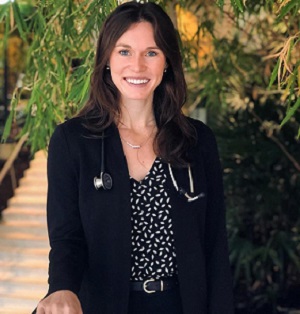
Sabrina Fitzgerald, MD Candidate, University of Toronto
Mentors: Dr. Lindy Romanovsky (Staff Geriatrician, Sinai Health System) and Dr. Samir Sinha (Director of Geriatrics, Sinai Health System).
Project description: For the past two summers I’ve had the opportunity to work on a quality improvement project. Specifically, we investigated the impact geriatrician-performed Comprehensive Geriatric Assessment plus ongoing co-management has on Functional Independence Measure scores (a measure of patient disability) in dedicated rehabilitation programs for older adults. We studied both dialysis and non-dialysis patients, contributing uniquely to existing knowledge in the field. Our results show that older adults receiving inpatient rehabilitation improve their functional statuses more effectively when a geriatrician is involved with their care. Based on the overall positive results, we are hoping to promote this initiative as a new shared model of care. My contribution to this project included conducting a literature review, collecting and analyzing data, as well transcribing our results into a manuscript.

Hannah Zou, MD Candidate University of Toronto
Mentors: Dr. Katrina Piggott (Staff Geriatrician, Sinai Health System), Dr. Eric Wong (Geriatrician, St. Michael’s Hospital and UNH) and Dr. Samir Sinha
Project description: The COVID-19 pandemic has been detrimental to the older adult population, which sees higher hospitalization rates, ICU admission rates, and mortality rates than any other age group. What makes it difficult to diagnose infections early in this population is, in part, that many older adults do not present with the common symptoms used to screen for COVID-19, such as fever, cough and shortness of breath. For many, we may see atypical presentations like delirium, falls, and functional decline, which can be easily masked by pre-existing conditions. Our study aims to characterize and understand the scope of atypical symptoms experienced by older adults, and in doing so improve screening and early diagnosis in this highly vulnerable population. Furthermore, we want to better understand delirium in older adults with COVID-19 infections. In addition to being an atypical presentation, agitation and aggression in delirium may pose risks to staff and other patients without appropriate management. Timely detection and treatment of delirium can mitigate these risks and improve patient outcomes. Finally, we will examine the associations between atypical presentation and patient outcomes. This information will help healthcare teams improve the management of complications, which would also improve patient outcomes. We are using a retrospective and prospective chart review design, and we expect to include >1000 patients in our study.
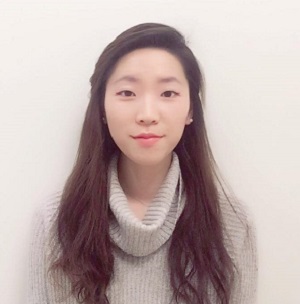
Valerie Kim, MD Candidate, University of Toronto
Mentor: Dr. Shabbir Alibhai (Staff Geriatrician, Sinai Health System)
Project description: For my summer project, I prepared a mixed methods protocol for evaluating the description of geriatric patients and their frailty considerations at multidisciplinary cancer conferences (MCCs). These meetings promote discourse on best practices, which can be challenging to determine for older adults when they remain underrepresented in clinical trials. With the limited evidence base for this demographic, the content and language shared at MCCs can carry significant connotations and implications for treatment recommendations. Preliminary work suggests that these forums often allude to frailty with vague, subjective comments (e.g. “patient appears younger than stated age, seems strong enough for chemotherapy”) that rely more on individual clinicians’ judgment than on validated geriatric assessment (GA). Literature review and expert consultation supports our hypothesis that MCCs and subsequent treatment decisions disproportionately focus on advanced age and comorbidity, with less consideration of the other GA domains: functional status, cognition, nutrition, mood, and social support. From my experience appraising past research and interviewing MCC attendees, I designed a data collection form that we will use to capture what is shared and by whom during case presentations of cancer patients aged 75 and over. After learning from the process of developing, refining, and submitting a project protocol, I’m looking forward to our next steps: joining MCCs, observing their discussions, and analyzing their GA-informed descriptions. By shedding a light on the language employed at these multidisciplinary meetings, this study holds promise to elucidate how frailty-related vocabulary, or lack thereof, can impact cancer care for older adults.
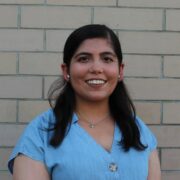
Misha Dhuper, MD Candidate University of Toronto
Mentor: Dr. Samir Sinha, Ms. Julie Dunning (Senior Policy Advisor, National Institute on Ageing)
Project description: This summer, I had the opportunity to work with the team at the National Institute on Ageing (NIA). I helped to create and refine the methodology for collecting provincial and territorial-level COVID-19 resident and staff case data in continuing care settings. We also collected home-level data regularly, using government and facility websites, media reports, and other media contacts to fill in any data gaps. In order to promote radical transparency and support residents, families and care providers, this data is featured on the NIA Long Term Care (LTC) COVID-19 Tracker (https://ltc-covid19-tracker.ca/). Our data has been used to analyze and compare the policy responses between provinces as well as to support the work of other researchers (e.g. LTCcovid.org and CIHI). I also had the opportunity to contribute to a Canadian jurisdictional scan of the LTC visitor policies implemented in each province and territory as the COVID-19 pandemic restrictions were slowly lifted, and we hope to apply these same guiding principles to a collaborative international report. The COVID-19 pandemic has disproportionately impacted older adults, especially those living in long term care and other congregate living settings. Therefore, gathering and analyzing this data arms us with the information we need to advocate for older adults by addressing the systemic vulnerabilities and preventing this from recurring in the future.
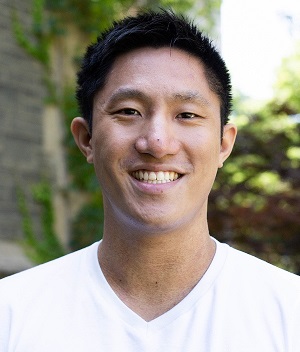
Edwin Wong, MD Candidate University of Toronto
Mentor: Dr. Arielle Berger (Staff Geriatrician, Sinai Health System)
Project description: My project was a systematic review on the qualitative evaluation tools and outcomes of professionalism teaching in post-graduate medical education. Professionalism education, in particular for resident physicians, has been shown to be both helpful for shaping appropriate attitudes and behaviours, and building necessary competencies. We are interested in a qualitative approach as these methods and results may better capture learners’ experiences, especially in smaller group settings. Building off from a previous study, I critically appraised and extracted the teaching modalities and evaluation tools used in qualitative professionalism teaching studies and conducted a thematic analysis of their outcomes. The results highlight the importance of professionalism teaching during residency, both for physician well-being and clinical translation, and demonstrates the usefulness of qualitative measures in these curricula.
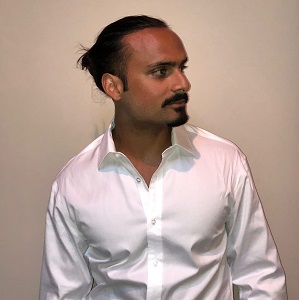
Adam Christopher, MD Candidate, University of Toronto
Mentor: Dr. Samir Sinha
Project description: This summer I had the opportunity to research and design the preliminary phases of a geriatrics training program for Toronto Police Service (TPS) officers, in collaboration with the National Institute on Ageing at Ryerson and the City of Toronto. This project ultimately aims to create an age-friendly TPS by training officers to recognize and respond to ageing-related health issues and to make timely community referrals. My role in this project was to conduct a literature search to better understand and characterize what has already being done in this area and to effectively design, implement, and evaluate an appropriate training program. My final project deliverable was a consultation report, complete with a program logic model, addressed to the relevant stakeholders. This report is meant to help guide the project’s future steps.
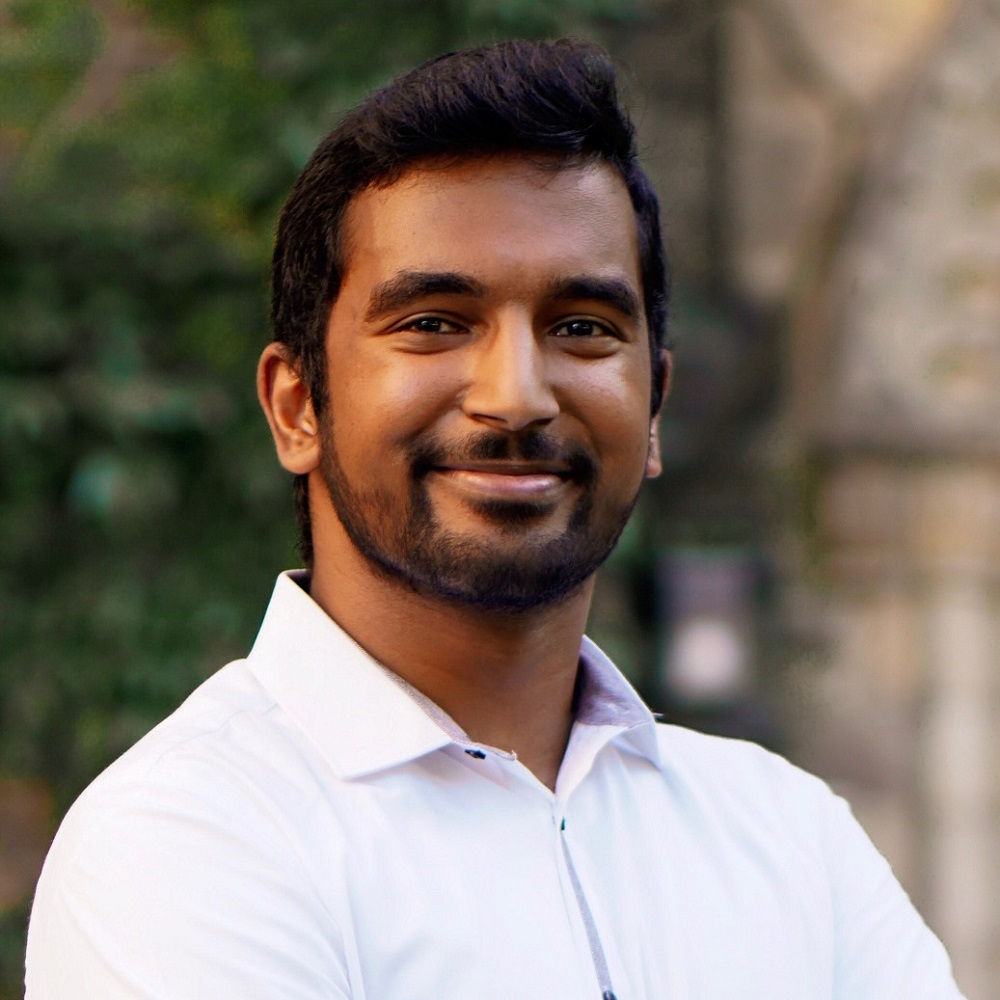
Arushan Arulnamby, MPH Health Promotion Student, Dalla Lana School of Public Health, University of Toronto
Mentors: Dr. Samir Sinha, Ms. Julie Dunning (Senior Policy Advisor, National Institute on Ageing)
Project description: My main summer project was a white paper focusing on shingles vaccination in Canada, with the goal of providing evidence-based recommendations for provincial/territorial health authorities and organizations. Shingles is an infection that is usually presented as a painful rash, caused by the reactivation of the varicella-zoster virus, which is also responsible for chickenpox. Older adults are vulnerable to this disease, yet only 28% of Canadians 50 years and over are vaccinated. This project required me to complete extensive literature reviews on various topics including; background on shingles, vulnerable populations, burden in Canada, shingles vaccines, national recommendations, policies, trends, and barriers toward uptake.
I also worked on the development of the NIA Long-Term Care COVID-19 Tracker. I was responsible for collecting data on the number of cases and deaths within long term care and retirement homes in various provinces. This information was used to create an interactive map to show viewers the current national COVID-19 situation within these facilities.
Learn more about our previous cohorts of SHS/UHN Savlov/Schmidt Scholars here and here.
Helpful links:

